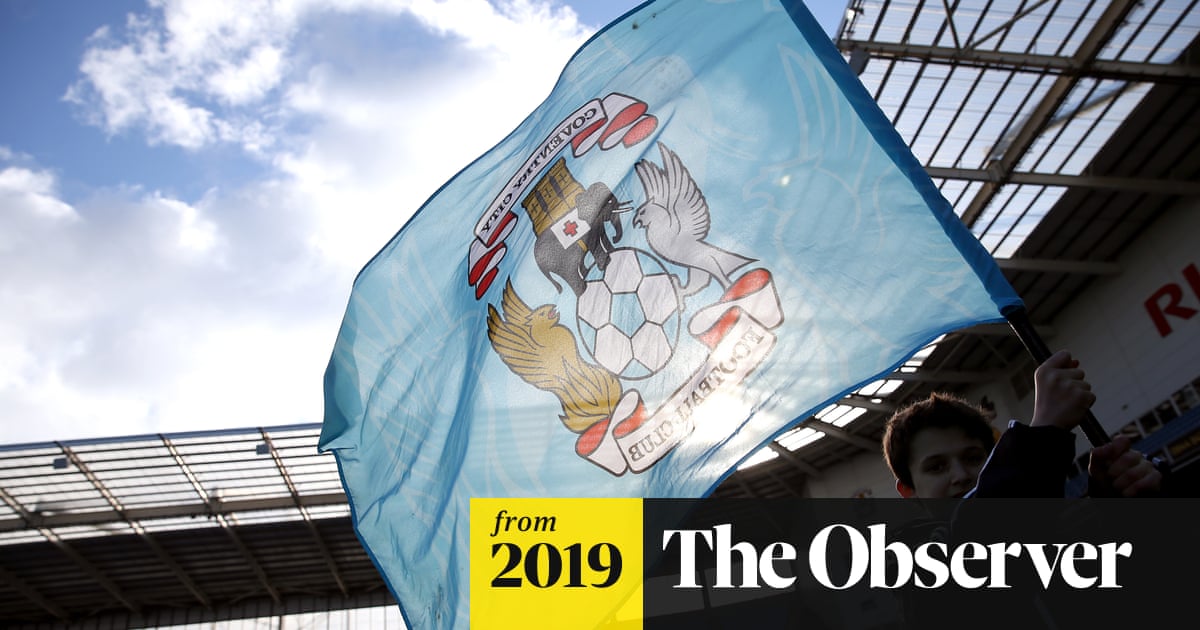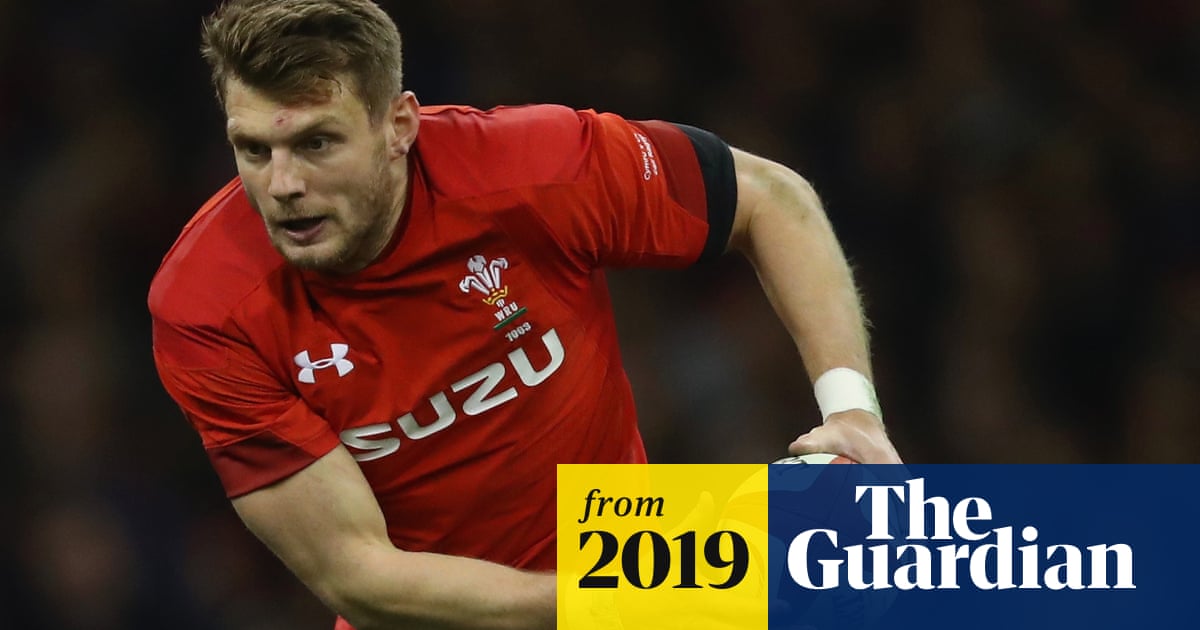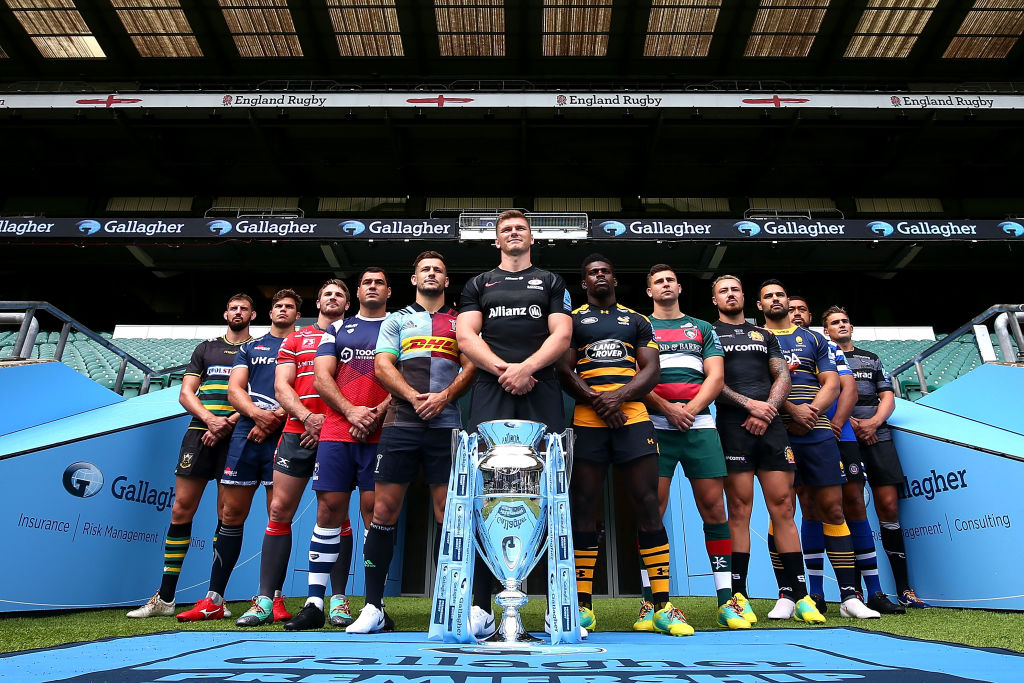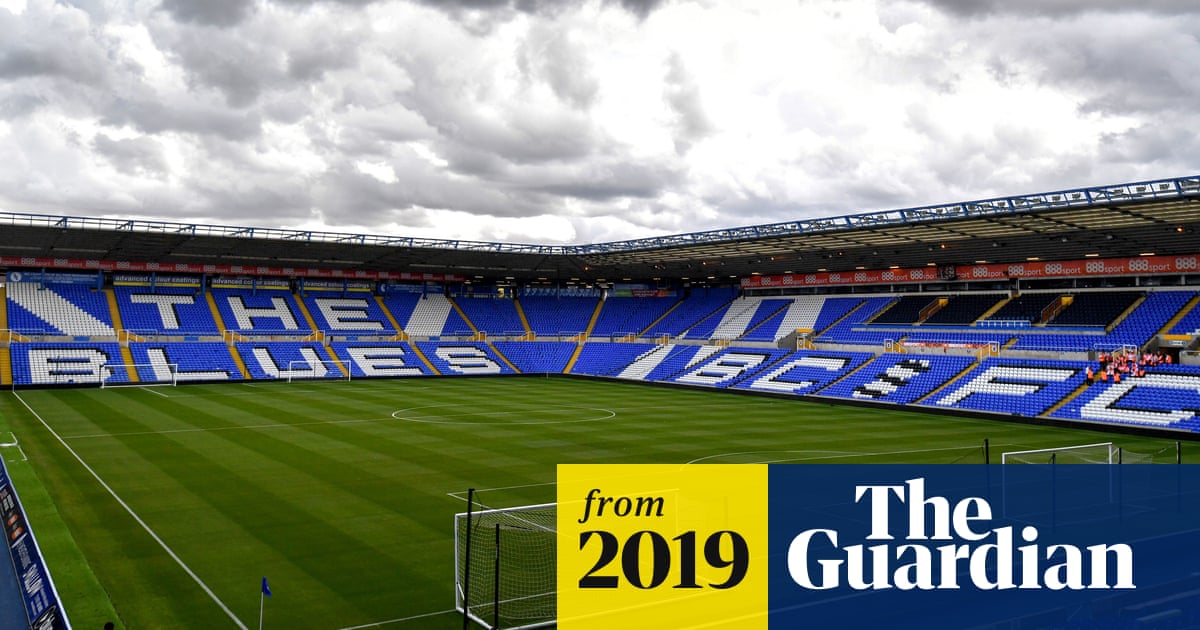Rugby Finances
-
Not strictly a "rugby finance" article. But is a good read. About Forsyth Barr Stadium.
From Saturday, 16 February 2019
It is 10 years since a major vote in Dunedin’s Municipal Chambers gave the green light for the Forsyth Barr Stadium. The venue has been racking up successes attracting concerts recently, but the bitter debate at its inception come at both a financial and emotional cost to the city. David Loughrey speaks to those involved.
-
Thursday, 4 October 2018
'Stellar year' sees stadium manager in the black, again
The company running Forsyth Barr Stadium has delivered its third consecutive profit, and the man in charge hopes the days of losses are behind it.
Dunedin Venues' annual report for 2017-18 showed the company made a $602,000 after-tax profit in the year to June 30, up from $299,000 the previous year.
Dunedin Venues chief executive Terry Davies said the ''stellar year'' reflected the string of significant events staged at the stadium during the period.
That included an All Blacks Bledisloe Cup test match, but also concerts by Stevie Nicks and The Pretenders, Roger Waters, Robbie Williams and three massive shows by Ed Sheeran.
The success of those events was reflected in visitor statistics, which showed more people (263,000) attended music concerts at the stadium than Highlanders or All Blacks rugby fixtures (133,700) during the period.
Mr Davies said that showed the venue's success in diversifying its business in recent years, which also reduced the financial risk to ratepayers should it miss out on any one event, like an All Blacks test.
''You'd never have dreamt those sorts of numbers coming through for concerts four years ago. It was always rugby-dominated. It shows a shift in the business.
''We need to sustain that. We want that to be the model.''
The profit was a ''good result'' that would be reinvested into the business, covering maintenance and improvements and allowing it to grow, he said.
''We're not sitting on our hands. We're looking to improve our business all the time.
''We need to deliver surpluses to get to where we want to be.''
Rugby remained an important part of the stadium mix, but the venue still needed to be used more, and draw bigger crowds more often, he said.
''We've still got a way to go yet.''
Despite that, he was confident the days of the company's deficits were over.
''There's no way we would do that.
Putting all your eggs in one basket is high-risk, and we're trying to spread that risk.''
Having concerts by Stevie Nicks and The Pretenders, Roger Waters, Robbie Williams and three shows by Ed Sheeran all in one financial year, is quite amazing. (plus a Bledisloe Cup test match)
-
Although Dunedin rate payers are still paying the borrowing costs to build the stadium, with no dividends yet from the stadium profits. The stadium oerating profits (and the buidings depecraiaction tax write offs) are mixed up in Dunedin City Holdings Ltd. The stadium was planned in 2011 to deliver an $8m annual dividen to the council.
Council-owned companies such as Dunedin Venues paid an annual dividend to their parent body, Dunedin City Holdings Ltd, which in turn should make dividend and interest payments to its shareholder, the council.
Since 2011 DCHL's total annual payment had dropped from $23.2 million a year to $11.152 million in 2015-16, when dividends ceased completely. (But this has much to do with rotting power poles, as sports facilities)
Although "In the meantime, DCHL would continue to make interest payments to the council worth $5.9 million a year."
Dunedin City Holdings Ltd owns:
- Aurora (Electricity Lines Company)
- Delta (Electricity Lines Company)
- Dunedin Venues Ltd
- Dunedin Stadium Property Ltd
- Dunedin Railways Ltd - formerly Taieri Gorge Railway Ltd
- Dunedin Airport
- City Forests
from: https://www.odt.co.nz/news/dunedin/dchl-group-posts-profit
Thursday, 1 March 2018the previous year, and of $2.169 million for Dunedin Airport, up from $1.72 million the previous year.
Aurora and Delta's six-month results both dipped slightly from the corresponding period last year, following the separation of the two companies' boards, staffing and management structures.
Delta's after-tax surplus was $1.67 million, down from $1.84 million, while Aurora's was $3.15 million, down from $4.03 million.
Dunedin Venues Ltd, the company running Forsyth Barr Stadium, recorded a small but improving six-month after-tax profit of $298,000, up from $77,000 for the same period the previous year.
Dunedin Railways Ltd - formerly Taieri Gorge Railway Ltd - recorded a worse-than-expected after-tax loss of $634,000, up from the previous year's six-month $470,000 loss.
That was due in part to last year's July storm, which cost the company $385,000 in track repairs and $175,000 in lost income.
Dunedin Stadium Property Ltd - formerly Dunedin Venues Ltd, which owns the stadium building - posted a six-month loss of $4.2 million, as expected, up from $3.2 million. That largely comprised a non-cash book loss of $3.5 million a year, representing depreciation, staff said.
DCHL chairman Graham Crombie said he was pleased with the ''positive financial result once again''.
''Our half-year result is in line with our budget projections and our continued strong operating cash flow will provide a stable basis for the coming months and years.''
City Forests' result was primarily driven by strong international and domestic markets, and favourable shipping costs, while Dunedin Airport enjoyed an increase in landing charges and passenger numbers.
Aurora's increasing investment in its network maintenance showed in its capital expenditure, up nearly $16 million to $38.07 million, and higher group debt, while Delta's revenue was down largely due to the new contracting arrangements between it and Aurora.
-
Westpac Stadiums most recent financial report.
https://www.westpacstadium.co.nz/fileadmin/images/content/WRST_AR18.pdf
Westpac Stadium hosted a total of 50 major event days for the year, plus
several community event days. Over 424,000 fans attended events during the
12 months, with the cumulative attendance since opening now at 9.73 million.
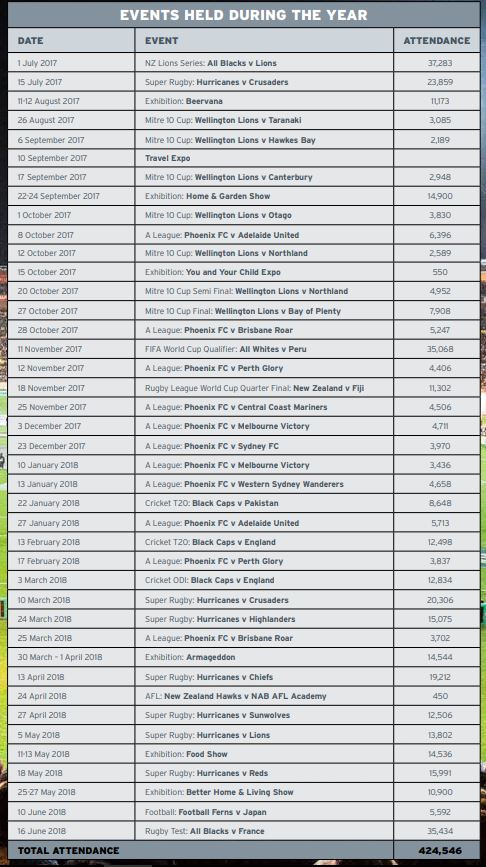
To keep it rugby related. Rugby attendance was 51% (217,243 out of the 424,546). Which was an exceptional year with 2 All Back tests falling within the FY.
-
still on the caketin report.
FINANCIAL PERFORMANCE
Our net surplus for the year was $1.3 million compared to $1.7 million in 2017.
Event revenues were $7.8 million compared to $6.9 million in the previous
year and a budget of $6.9 million.
Our budgeted surplus for the year was $2.6 million, which included grant
income from the Wellington City Council of $1.75 million. This is part of a $5
million contribution toward the concourse upgrade currently underway, which
is payable as work progresses. The amount received in the June 18 financial
year was $0.33 million. The balance will be received in future years. Excluding
this grant income, the net surplus was $0.94m, slightly ahead of the budget
of $0.85 million.
Both the Caketin and Forsythh Barr I would classify as succesful stadium builds that have come in at a level that debt burden is manageable (In Caketin's case has been getting repaid at a good level).
Caketin: The Stadium cost $130 million to build. The finance came from:
Wellington Regional Council: 25$M
Wellington City Council: 15$M
Grants and Donations: 7$M
Fundraising: 50$M
Bank Loan: 33$MThe bank loan is now just $2.5m
I just can't believe the Christchurch stadium plan. I won't recommend the Caketin model, I'd say aim a bit higher with a covered rectangular stadium. Why any council isn't trying to copy Dunedin as close as possible (without the bitter politics ...) is beyond me.
-
The Christchurch plan, options.
I recommend clicking the link above.
from the article:
-
Option 1 is a stadium with covered seats only, estimated to cost about $385m
-
Option 2 is a stadium with a transparent ETFE plastic roof similar to that at Dunedin's Forsyth Barr stadium, estimated to cost about $470m
-
Option 3 is a stadium with a solid roof, concrete floor and retractable turf (so grass could grow outside), estimated to cost about $561m.
Forsyth Barr cost $224.4m
I say chose option 2.
-
-
Eden Park's most recent report (a year ahead of the Caketin's above).
https://www.edenpark.co.nz/uploads/images/Eden Park Annual Report 2018.pdf
Big concern here is (2018):
- Sports Events Income 5,804,000
- Sports Events Expenses 7,733,000
An even in 2017 (Lion year), just a small sports event profit:
- Sports Events Income 8,646, 000
- Sports Events Expenses 7,509,000
Need to increase those paltry Blues and Auckland NPC crowds.
-
From the FT.
I'd guess Wasps will get a fine.
Wasps rugby club faces FCA probe over market statements
Formal investigation into Premiership team’s overstated earnings
Caroline Binham in London 9 MINUTES AGO
Rugby club Wasps is being investigated by the UK’s financial regulator over whether it misled the market about the state of its finances and how quickly it rectified the matter.The Financial Conduct Authority’s scrutiny comes after the 152-year old Premiership club admitted to creditors in late 2017 that it had overstated its earnings, breaching covenants on a £35m retail bond, and its auditors, PwC, stepped down after finding “falsified” information.
A £1.1m capital injection by Derek Richardson, the Irish businessman who owns Wasps and is its chairman, was wrongly stated as income. According to a market announcement made in December 2017, this cut the club’s earnings to £2.4m rather than the £3.5m it first stated.
Proceeds of Wasps’ bond, which is traded on the London Stock Exchange, go partly towards developing the club’s Ricoh stadium in Coventry and refinancing debts. The accuracy and timeliness of statements to the markets made by Wasps’ special purpose vehicle, the issuer of the bonds, are overseen by the FCA.
The watchdog has opened a formal investigation and is summoning individuals for interviews, said people familiar with the situation. The FCA has the power to fine and criminally prosecute breaches of its market-cleanliness rules.
-
Quite a fascinating back story to how Wasps ended up with the opportunity of owning the Ricoh Arena.
I didn't know that the Coventry City owners had plumbed such depths of shithousery, I just assumed they were a typical yo-yo club that had over-extended themselves into financial ruin.
Heartwarming story of a Hedge Fund attempting to pay hard ball but fucking up big time.
-
Coventry City, even though in the third tier these days - still average 10-12,000 over 22 home league games, plus cup ties.
Wasps wouldn't be wanting to lose a tenant like that.
Although they wouldn't mind losing a tenant that is constantly sueing them .....However, Coventry City also don't want to be risking getting thrown out of the Football League for being homeless.
https://www.bbc.com/sport/football/43979047
Now that Coventry City owners have lost their court battle, Wasps say they are open to talks
https://www.bbc.com/sport/football/47951057
Wasps have opened the door to the idea of talking again to the Sky Blues.
The rugby club, City's landlords, have always said they would be ready to discuss a new deal once the legal action ended.
-
Wales and Scotland made to wait in World Cup player release row
• Premiership and World Rugby could agree deal next month
• Dispute centres around insurance for non-English players
Gerard Meagher
Thu 25 Apr 2019 19.48 BST Last modified on Thu 25 Apr 2019 23.07 BST
Wales and Scotland are among a number of nations who will not find out until next month if their World Cup preparations will be severely disrupted by being denied early access to their Premiership-based players.
Warren Gatland names Wales’s World Cup training squad next Tuesday but the Guardian understands it will not be clear whether players such as Liam Williams, Dan Biggar and Taulupe Faletau are available for their altitude training camp in July, and their first warm-up match against England on 11 August, until World Rugby’s council meeting on 22 May.
As revealed by the Guardian last December, Premiership Rugby (PRL) issued World Rugby with a threat of legal action over an insurance row and had vowed to strictly enforce regulations over the release of non-English players in the top flight as a result.
That would mean Williams, Biggar and Faletau as well as a raft of Scotland internationals in the Premiership cannot join their countries’ World Cup preparations until mid‑August, only 35 days before the tournament begins in Japan. Tonga, Samoa and Fiji would also have their preparations hampered.
The Guardian understands that PRL and World Rugby are close to an agreement and that a proposal is due for consideration at the global governing body’s council meeting next month.
But while there is a degree of confidence from both parties it will be signed off, there is still some way to go before the agreement is finalised.
“We are continuing to have discussions with World Rugby and while we have made progress there are still some outstanding issues,” a PRL spokesperson told the Guardian. “Positive discussions are ongoing, however there are still some details that need confirming. We cannot confirm these finer details at this stage but we look forward to further positive discussions with World Rugby.”
The Breakdown: sign up and get our weekly rugby union email.
The initial dispute centred on World Rugby’s regulation 23, which states clubs are compensated by unions for injuries picked up on international duty for players who earn £225,000 or less a year. Anything more than that is paid by the clubs.
World Rugby had agreed to increase the threshold to £350,000 but PRL wanted no limit and requested it be removed on the basis there are 60 non-English internationals in the Premiership earning £225,000 or above and 25 on £350,000 or above. That was rejected last year, as was another request to do away with the 12-month limit, which means clubs are liable for any injury longer than a year.
The impasse – which led to that threat of legal action last December – prompted PRL to take a stance that no non-English Premiership players would be available for selection by their countries until the official pre‑World Cup window opens. According to World Rugby’s regulation 9, PRL must release players when it does open but does not have to before. If World Rugby ratifies the new proposal next month, however, those players are set to become available to their countries much earlier.
-
Not a lot more new info. But contains a nice tidy table of wages as a % of turnover.
Plus Exeter chairman explaining how their balance sheets are now magically healthy after CVC valued their league at 800 million, and can they can now borrow even more based on said healthy balance sheets.
-
google translated, so may read a bit rough.
from Rugby365
TOP 14 - STADE FRANÇAIS: A RECORD DEFICIT FOR THE PARIS CLUB?
POSTED ON APRIL 16, 2019 AT 9:48 PM THIBAULT LAURENS
For the second year in a row, the Stade Français will experience a budget deficit. After the 18 million euros of losses last year, they would amount to 17 million euros this season. That's 35 million since the arrival of Hans-Peter Wild which is a sad record.>
From Le Monde:
Hans-Peter Wild wants results. For the moment, the owner of the Stade Francais must rather be content with an unfortunate record. According to information from the World , confirmed by the "stadist" direction, the Parisian rugby club recorded an operating deficit unprecedented in the history of the championship of France: a loss of 18 million euros to the resulting from the 2017-2018 season, the first with the billionaire as new shareholder. That is more than half of its annual budget, estimated at around 32 million euros.
A trifle for Hans-Peter Wild, 77 years old. Born in Germany, living in Switzerland, the billionaire spends countless. The man can afford little juicy balance in rugby: he made his fortune in the fruit drinks industry.
In June 2018, according to a document procured by Le Monde, the septuagenarian has already considerably bailed out the coffers. On the occasion of an extraordinary general meeting, the "doctor" Wild (his university title) injected 19 million euros into the share capital of Stade Français Paris - an amount still greater than the deficit. Accounting to excess of his personal resources, and a professional rugby that involves more and more investors as expenses. Quit playing with the balance of clubs, even with their durability ...
The National Directorate for Management Assistance and Control (DNACG) will comment in more detail on the loss in question. This independent body is scheduled to close in March its next annual report on the financial health of French Ovalie. In May 2018, the latest publication concerned the 2016-2017 season: the accumulated deficits of eight Top 14 formations amounted to 27.5 million euros.
-
NZRU released their annual report about 2 weeks ago. Seen nothing in the media.
From the Finances POV - This year made a $1.8 million loss. The previous year (a Lions year) made a $33 million profit.
Trucking along, nothing too extraordinary
http://files.allblacks.com/publications/2018-NZR-Annual-Report.pdf
-
@Rapido There were articles in the herald and stuff about it e.g.
https://www.nzherald.co.nz/sport/news/article.cfm?c_id=4&objectid=12223217
It's the future they are worried about, a lot of the money comes from playing the currency, which is not, or may not be available(paid in US$ or whatever) - we need that big WR deal TBH
-
CVC and the 6 Nations.
http://www.sportspromedia.com/news/six-nations-rugby-cvc-minority-stake-sale-investment
Six Nations in exclusive talks with CVC over £300m minority stake
The Six Nations has entered into an exclusive period of negotiation with CVC Capital to sell a stake in the rugby union Test competition, it has been confirmed.
It had been reported in July that the Six Nations was in talks with the private equity firm to give up a minority share for UK£500 million (US$621 million) in order to provide a financial boost for each union competing in the championship and help grow the game.
Initially, the deal was believed to be for an approximate 30 per cent share in the Six Nations. But with the sale now moving a step closer, it appears CVC is set to take control of 15 per cent of the competition’s commercial arm for £300 million (US$372 million), according to the Times.
If the deal goes through, it’ll mean the company will also own a share of autumn internationals and summer tours after European rugby unions decided to pool their business into one commercial entity.
The sale is apparently set to be completed after the Rugby World Cup ends on 2nd November.
A Six Nations statement said: ‘Six Nations believes that investment in rugby football is vital for the long-term future of our game and this belief is central in our decision to enter into this period of negotiation.
‘Six Nations, together with its constituent unions and federations, has agreed to enter into an exclusive period of negotiation with an external investor partner.
‘As these negotiations are confidential and commercially sensitive, Six Nations will not be making any further comment.’
From an SH interest POV, not sure what they mean by this part' "If the deal goes through, it’ll mean the company will also own a share of autumn internationals and summer tours after European rugby unions decided to pool their business into one commercial entity."
Is it a lack of knowledge of revenue model by the financial authors? Or is something afloat. Can't be meaning the BILs , although wouldn't be surprised if they were interested in that.


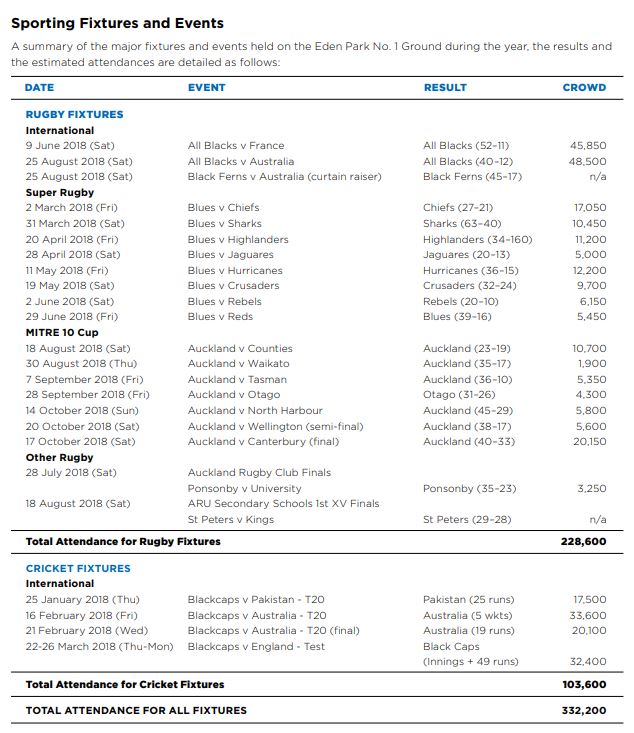
 Wasps rugby club faces FCA probe over market statements
Wasps rugby club faces FCA probe over market statements

